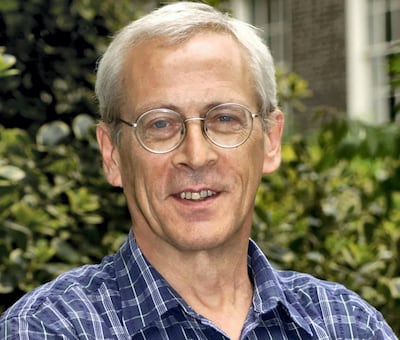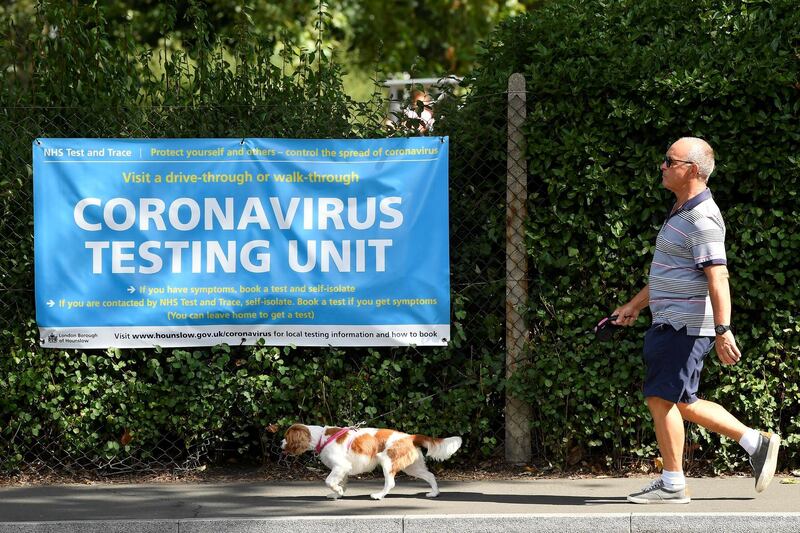A rapid Covid mass testing regime introduced by Britain could help a recovery from global recession, the professor who first promoted the programme has told The National.
Five months ago Prof Julian Peto, a leading epidemiologist and statistician, argued that widespread testing of the population was the only way to bring a rapid end to the strict lockdowns and revive the economy.
In an interview with The National today he said if used globally mass testing could revive the world economy and stop the second wave currently gripping a number of countries.
“The sooner you start mass testing the sooner you can pull out of lockdown and prevent a catastrophic economic meltdown,” he said. “The important point is the fact that you can stop the next pandemic from happening if you do this worldwide. That will stop a second wave.”

In April Prof Peto, of the London School of Hygiene and Tropical Medicine, put forward a paper in the respected Lancet medical magazine and was contacted by Downing Street to move it forward.
In an interview with The National in May he said there were plans for an English city of 300,000 people to be used as guinea pig for a weekly testing method that involved saliva and did not require a major clinical laboratory.
This would allow the authorities to very quickly track, trace and isolate outbreaks of coronavirus and via enforced quarantine of victims allow them to rapidly stamp it out.
While Prof Peto was “delighted” that the government was finally following his proposal he said it was “disgraceful” it had not been adopted earlier.
Until very recently it appeared that the government had abandoned the idea.
However, in an apparent U-turn it was announced today, via the media, that the government was spending £500 million to carry out saliva tests in the towns of Southampton and Salford, outside Manchester.
The 20-minute test gives results on the spot and will be carried out voluntarily on shoppers, teachers, schoolchildren and commuters even if they have no symptoms.
With a Covid vaccine still several months away, it is hoped the mass testing with quick results will allow people to get back to offices, sports events and other activities. It is also hoped that the rapid new tests will close the widening gap between laboratory capacity and the number of tests processed.
Matt Hancock, the health secretary, said by the end of autumn mass testing could become normal to suppress the virus and allow businesses to thrive again.
“Testing is a vital line of defence in combatting this pandemic,” he said. “While we work on a vaccine we must innovate our way out of this crisis.”
The government’s move has been welcomed by Prof Peto as a vindication after other scientists said his proposal was unworkable. “I’ve desperately been trying to get this to happen for five months,” he said.
“The thing is to stop the virus spreading. But for this to work the whole world has to do it because Britain cannot get to its feet on its own as a single nation. We need the whole world economy to recover.”
He has estimated that mass testing for everyone in Britain alone could cost up to £10 billion but that is a fraction compared to its current £2 trillion debt.
Downing Street now appears to be fully behind the programme with Boris Johnson said to be “hugely enthusiastic” calling it ‘Operation Moonshot’. “
Prof Peto believes that cities currently in lockdown could have restrictions lifted within a week with the testing. "The disease rate would go down so fast that even after a month you might be able to stop testing and control small outbreaks with intensive contact tracing," he said.
If the programme proves successful it will be rolled out nationwide within months.







